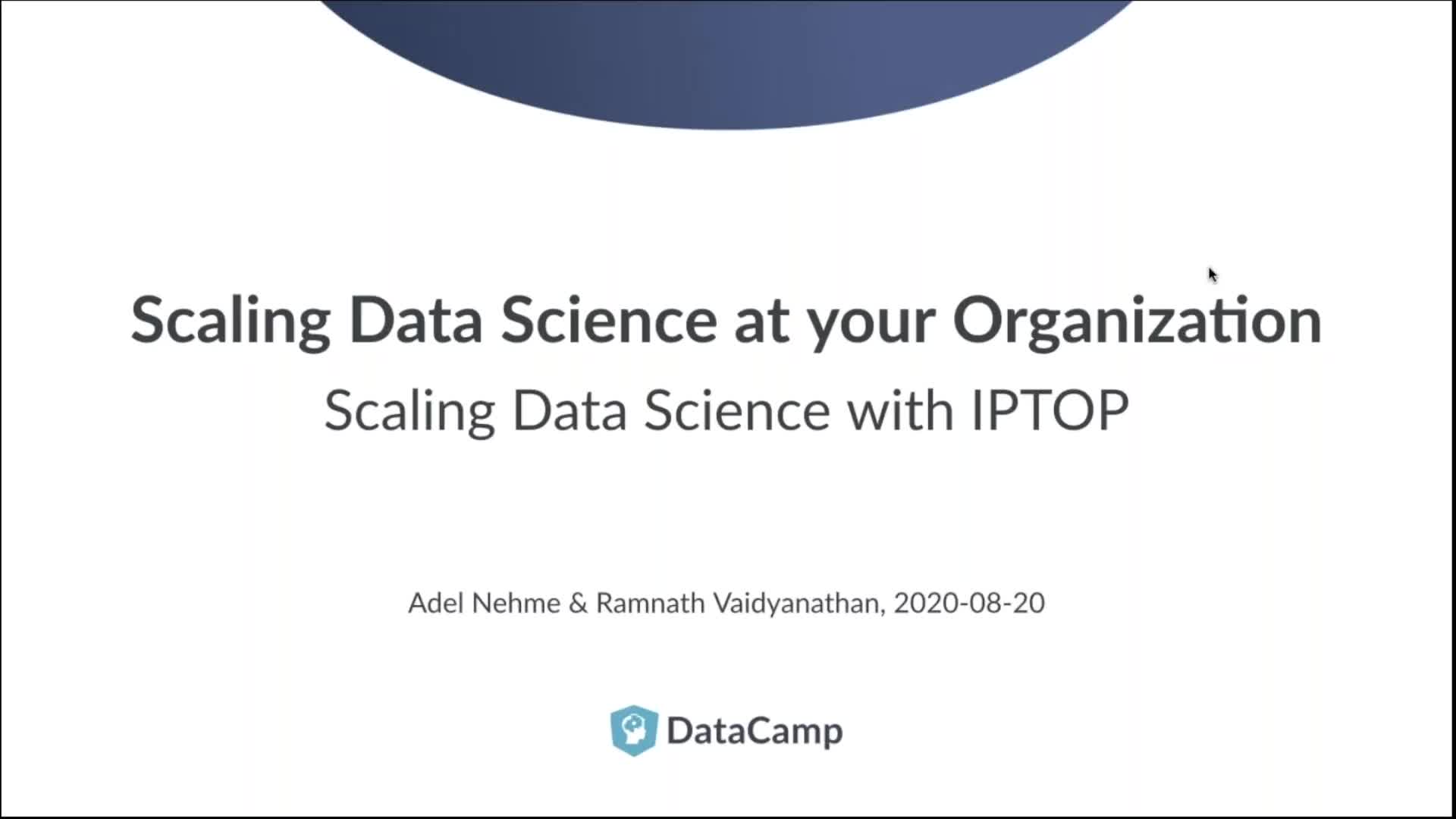Speakers


Ramnath Vaidyanathan
Training 2 or more people?
Get your team access to the full DataCamp library, with centralized reporting, assignments, projects and moreScaling Data Science At Your Organization - Part 1
November 2021
Related
webinar
Building a Scalable Data Strategy With IPTOP
Learn the must-have components to seamlessly scale your data strategy.webinar
Scaling Data Science At Your Organization - Part 3
Learn how to organize your data science team to scale effectively.webinar
Scaling Data Science At Your Organization - Part 2
Scaling and democratizing data science relies on infrastructure and tools.webinar
Make the most of your organization’s data with business intelligence
Learn how to scale data insights in your organization with business intelligencewebinar
Data Skills to Future-Proof Your Organization
Discover how to develop data skills at scale across your organization.webinar